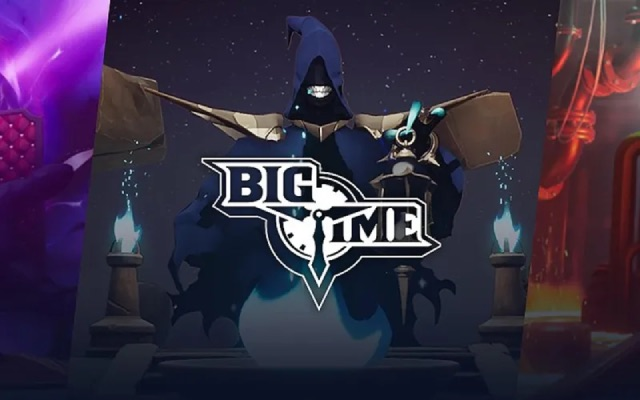
Over the past few decades, the game industry has experienced tremendous changes, from stand-alone games to online games to today's blockchain games. Each technological advancement has profoundly affected the way players interact with the game world. As part of blockchain technology, BIGTIME tokens are reshaping this interaction method and bringing players a new gaming experience. This article will explore how the BIGTIME token is changing the way players interact with the game world, and analyze the potential impact of this change on the future gaming industry.
True ownership of in-game assets
Under the traditional game model, the virtual assets players obtain in the game do not actually belong to them. These assets are just a piece of data on the game server. Once the game company closes the server or ceases operations, players will lose these assets. The BIGTIME token uses blockchain technology to allow players to truly own the assets they obtain in the game.
The decentralized nature of the blockchain means that virtual assets within the game can be freely transferred between different platforms without being controlled by a single game company. Players can use BIGTIME tokens to purchase virtual assets, which exist on the blockchain in the form of NFTs and are unique and non-tamperable. In this way, the virtual assets owned by players are not just data, but a real property that can be freely traded and used between different games and platforms.
Economic participation and reward mechanism
BIGTIME tokens provide players with a way to participate in the in-game economy and allow players to obtain actual financial rewards through a series of incentive mechanisms. In traditional games, player participation can often only be translated into achievements in the virtual world, but not into real-world value. The BIGTIME token changes this.
In games that use BIGTIME tokens, players can earn tokens by completing tasks, participating in challenges, or conducting transactions. These tokens can be used to purchase in-game virtual assets, or exchanged for other digital currencies or even legal tender. This means that players’ efforts and time can be converted into actual economic benefits, and this reward mechanism greatly motivates players to participate.
In addition, game developers can also design diversified token economic models, such as P2P transactions between players, auction systems, token pledges, etc., which provide players with more ways to participate in the economy and further enhance Game playability.
Decentralized community governance
BIGTIME tokens also promote decentralized governance of the game community, allowing players to participate in the decision-making and management of the game. In traditional games, all decision-making power is in the hands of game developers, and players can only passively accept changes or updates to game content. The introduction of blockchain technology has changed this power structure.
In the BIGTIME token ecosystem, players can participate in community governance by holding and using tokens, voting and making decisions on the future development of the game. This decentralized governance model not only allows players to feel involved, but also gives them the opportunity to influence the direction and content of the game. For game developers, this player-driven model helps create game content that is more in line with player needs, thereby improving game quality and player loyalty.
Future Outlook: In-depth integration of players and games
With the further development of blockchain technology, BIGTIME tokens will become an important part of the gaming industry and further change the way players interact with the gaming world. In the future, we can foresee that more games will introduce similar token economies and allow players to gain a deeper sense of participation and rewards in the game through decentralized community governance and economic incentives.